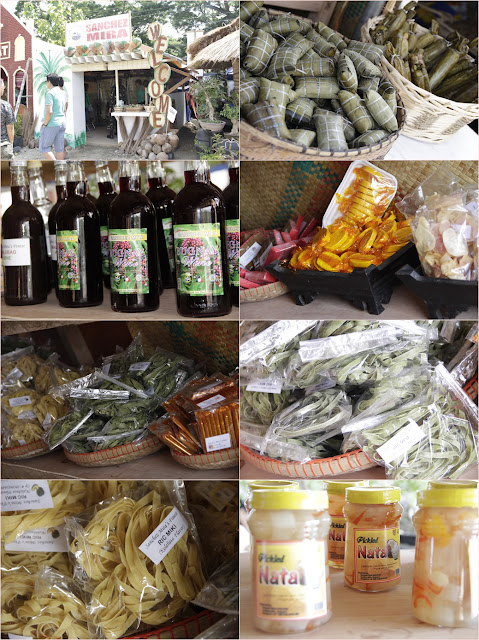 Features of the Agrarian Reform 10-year
Bond (AR Bond): (a) Interest rate is similar to the 91-day Treasury Bills and
payable after six months and every six months thereafter; (b) Ten percent of
the Bond’s original face value matures every year and paid to the holder of the
Bond until the tenth year/maturity date; (c) The Bond is issued by the
government through Land Bank. Non-denominated amount to the last centavo and
can be as low as P500 (amount less than P500 are paid in cash; (d) Bond
transfer can be fully effected (i.e., new bond certificate already in the name
of the transferee within five (5) days from date of purchase; and (e) It is
Transferable and highly negotiable.
Features of the Agrarian Reform 10-year
Bond (AR Bond): (a) Interest rate is similar to the 91-day Treasury Bills and
payable after six months and every six months thereafter; (b) Ten percent of
the Bond’s original face value matures every year and paid to the holder of the
Bond until the tenth year/maturity date; (c) The Bond is issued by the
government through Land Bank. Non-denominated amount to the last centavo and
can be as low as P500 (amount less than P500 are paid in cash; (d) Bond
transfer can be fully effected (i.e., new bond certificate already in the name
of the transferee within five (5) days from date of purchase; and (e) It is
Transferable and highly negotiable.
The
AR Bond can be used as payment for goods and services, such as:
(2) Taxes - up to ten percent (10%) of the bond’s original
face value that is maturing during the
year may be used to pay: Income Tax (individual or corporate), Final Income Tax
due from individual taxpayers, Estate Tax, Donor’s Tax, Value Added Tax, Excise
Tax, and other Percentage Taxes;
(3) Subdivision Lots offered by accredited
realty companies like Filinvest Development Company, United Resources Realty
and Development Company, Moldex Realty Inc., Active Realty and Development
Corporation;
(4) Machinery and Equipment such as agricultural and industrial
machineries of Marsson Industrial Corporation, Dynamic Power Plants Inc.;
(7) Appliances and furniture from
accredited suppliers;
(8) Hardware and construction materials from accredited
suppliers;
(9) Imported trucks and heavy equipment from Pachino Motors;
(10)
Tuition Fees on State Colleges and Universities (SUCs) such as University of
the Philippines (nationwide), Pamantasan
ng Lungsod ng Maynila, Polytechnic University of the Philippines,
Technological University of the Philippines, Philippine Normal University of
the Philippines, Eulogio “Amang” Rodriguez Institute of Science and Technology,
Rizal Technological Colleges, other SUCs in the provinces;
(11) Tuition Fees on
private schools such as Colegio de Sta Isabel (Naga City), MEIN College
(Zamboanga City), St Joseph College (Tacloban City), Ateneo de Naga (Naga
City), Good Samaritan Colleges (Cabanatuan City), Manuel Enverga University
Foundation (Lucena City), applicable only to original bondholders and their
immediate dependents;
(12) Medical Expenses in Government Hospitals such as
UP-Philippine General Hospital, Philippine Heart Center, National Kidney
Institute, Lung Center of the Philippines, Philippine Children’s Medical
Center, All medical centers, special hospitals and sanitaria under DOH;
(13)
Medical Expenses in private hospitals such as Calbayog Sanitarium and Hospital
(Calbayog City), Sacred Heart Hospital (San Vicente, Urdaneta, Pangasinan),
Dagupan Doctors-Villaflor Memorial Hospital (Dagupan City, Pangasinan)
applicable to immediate bondholders and their dependents;
(14) As security for
loans with Development Bank of the Philippines (DBP) and/or Land Bank of the
Philippines (LBP);
(15) As Investment Instrument – Regardless of the amount it
earns interest aligned with the 91-day T-Bills. The Bond can be purchased from
the LBP Bond Trading Board at discounted rates and with up to five-month
accrued interest waived by bondholders-sellers;
(16) As Capital and Reserve
Investment – Capital and reserve investment for insurance companies and
investment for reserve funds of pre-need companies.
 TUGUEGRAO
CITY, July18, 2013 - The Integrated Farmer’s Cooperative (IFC) is an agrarian
reform beneficiary (ARB) cooperative in the SOUTHCAG Agrarian Reform Community
(SouthCag ARC) located at Namabbalan Sur in the eastern part of Tuguegarao city. It has
been engaged in small scale dairy production since 2004 through fresh carabao
and cow’s milk collection, processing and marketing.
TUGUEGRAO
CITY, July18, 2013 - The Integrated Farmer’s Cooperative (IFC) is an agrarian
reform beneficiary (ARB) cooperative in the SOUTHCAG Agrarian Reform Community
(SouthCag ARC) located at Namabbalan Sur in the eastern part of Tuguegarao city. It has
been engaged in small scale dairy production since 2004 through fresh carabao
and cow’s milk collection, processing and marketing. 



































